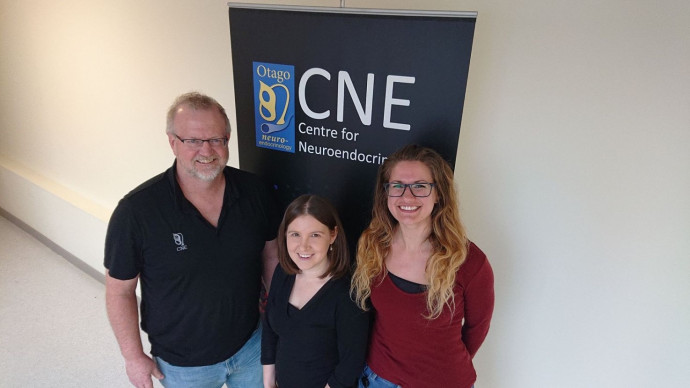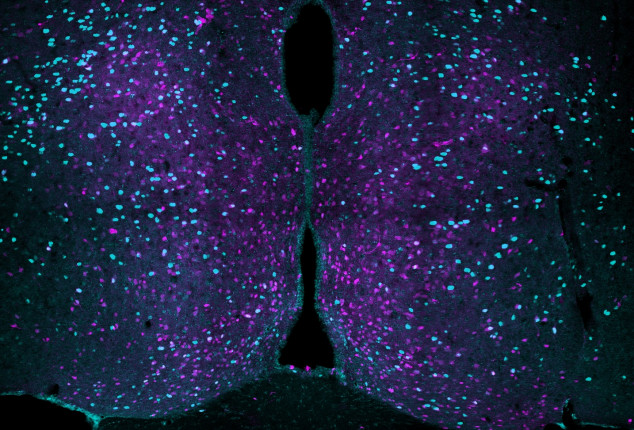The hormone that makes good dads

Dr Kristina Smiley, University of Otago, will study the role the hormone prolactin plays in inducing good parental behaviour in male mice
Like human fathers, male mice make a significant contribution to rearing their offspring. For male mice this involves a dramatic change in behaviour towards infant mice. This transition is triggered by the act of mating, but after this there is a delay of about two weeks before behavioural changes are seen. By three weeks, when up to ten new babies arrive, male mice are ready to be good fathers. However, the mechanisms that drive this behavioural shift are not known.
Dr Smiley has recently shown that that the hormone prolactin, known best for its role in milk production, is essential for good parental behaviour in male mice. In female mice, prolactin stimulates the generation of new neurons in a specific region of the brain. The timing of the appearance of these new brain cells, about two weeks, is associated with the onset of maternal care behaviour. In this Fast-Start study, Dr Smiley will determine if similar changes occur within the male mouse brain following mating, and whether these changes are required for good paternal care behaviour.

Male mouse brain. Magenta: Cells/neurons that respond to prolactin. Blue: Recently activated cells in a male that was taking care of pups. We can use this image to show that many cells which respond to prolactin (magenta) in the brain are activated (cyan) when males take care of pups. Photo supplied
Determining the basis of normal parental care is essential to understanding the causes of postnatal mood disorders, which occur in both men and women. Dr Smiley hopes to eventually provide a greater insight into mood disorders associated with fatherhood, which could help address issues relating to child abuse or neglect.
